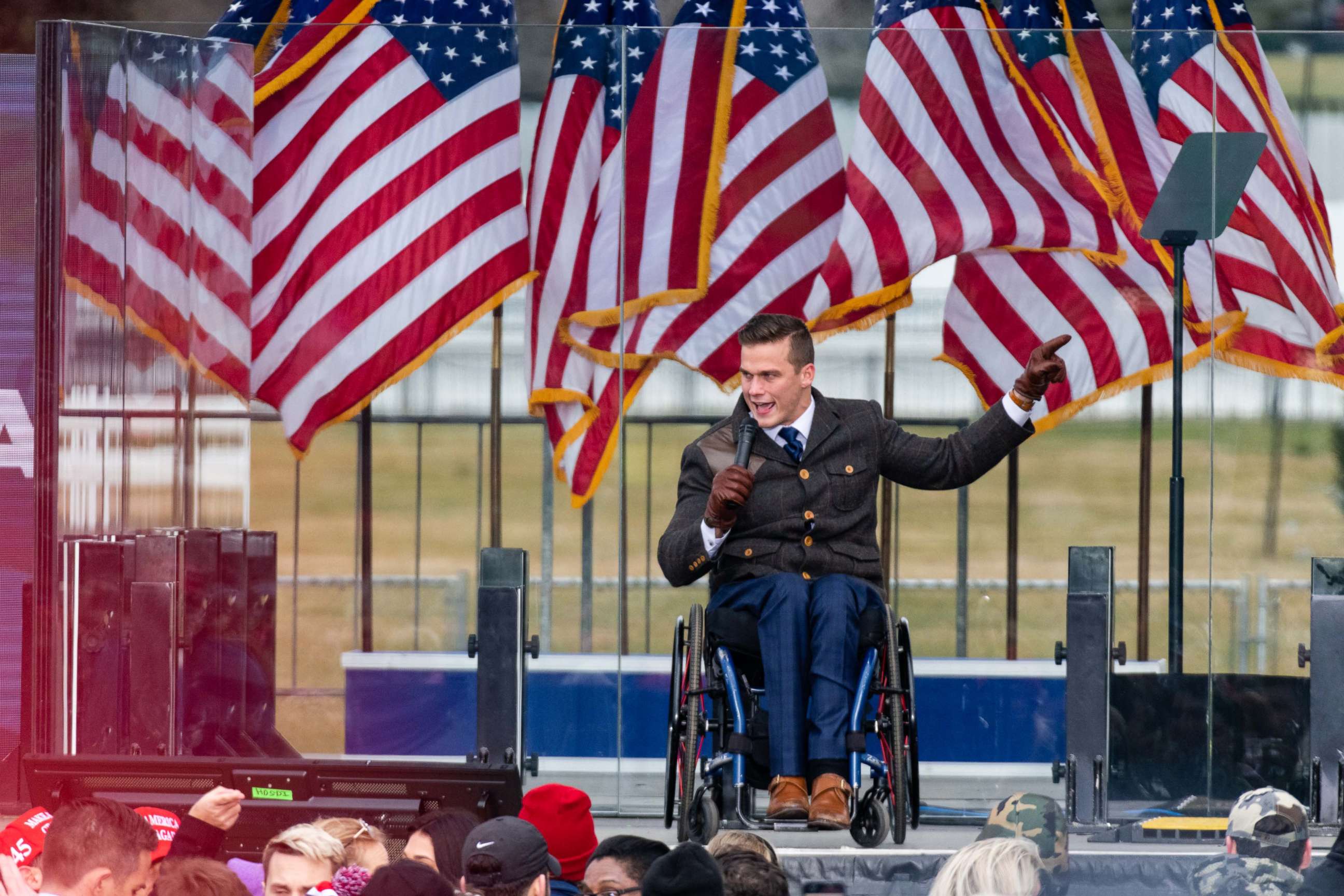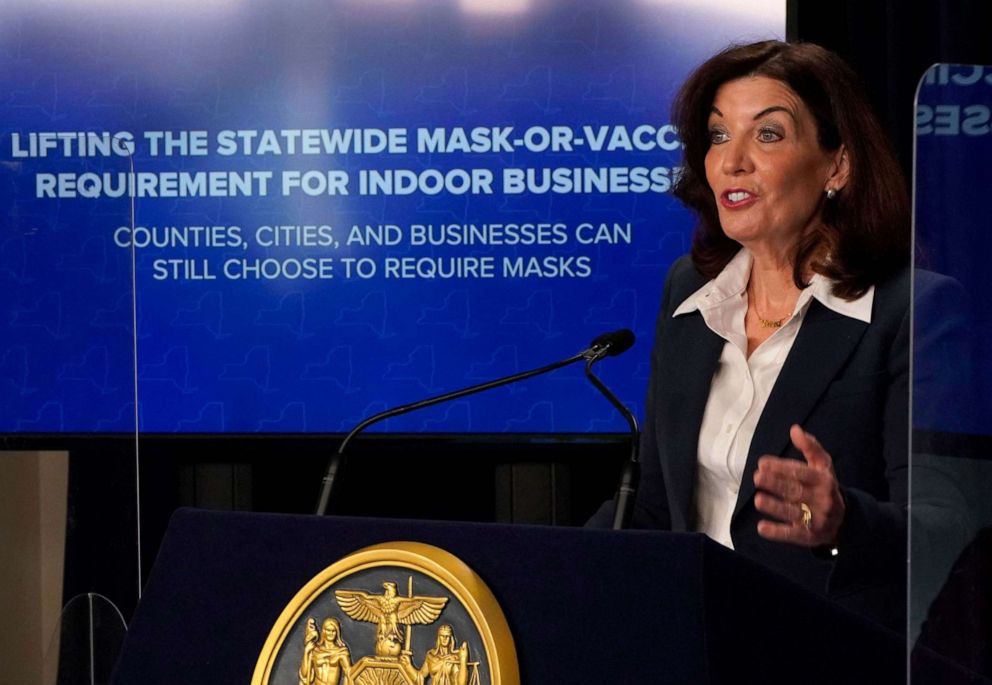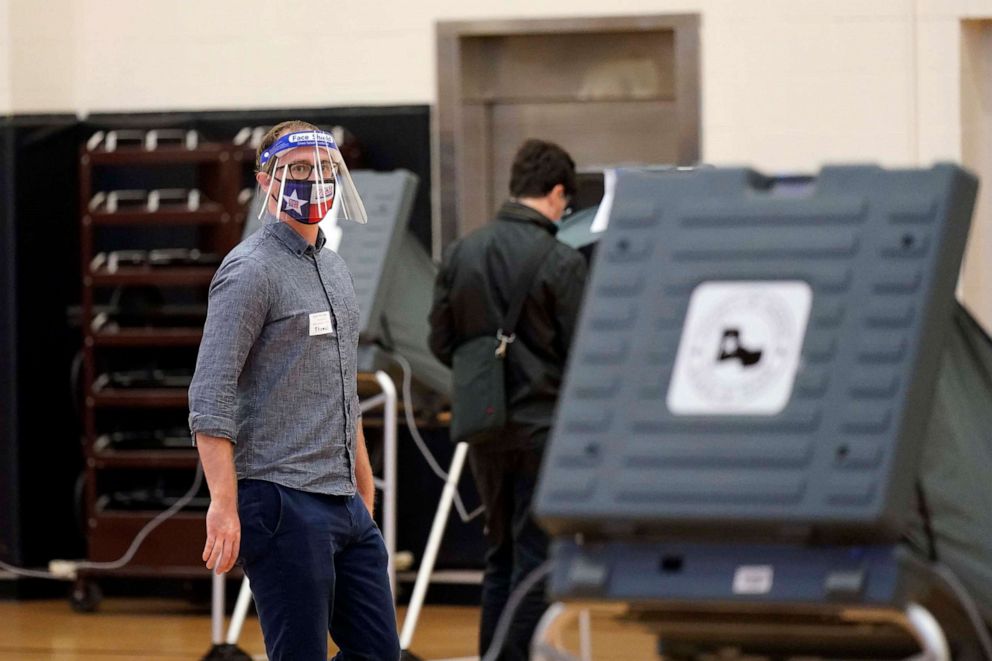RNC resolution only a piece of new Jan. 6 fallout: The Note
New revelations and legal actions point toward bigger consequences for the GOP.
The TAKE with Rick Klein
The focus has been on words in a resolution -- specifically, who does and does not consider the events of Jan. 6 to have been "legitimate political discourse."
It exposed divisions inside the Republican Party deep enough to carry nearly a week's worth of news cycles. But new revelations and new legal actions point toward bigger consequences for the GOP and those who might seek to whitewash the violent riot at the Capitol.
In North Carolina, the state Board of Elections is moving forward with a hearing that challenges the ability of Rep. Madison Cawthorn, R-N.C., to run for another House term, based on the Constitution's prohibition of anyone who "engaged in insurrection or rebellion" to serve in Congress.

Cawthorn spoke at the Jan. 6 rally and then came full circle. He initially said former President Donald Trump made a "major mistake" in directing a "weak-minded and pathetic" mob to the Capitol but later emerged as a fierce defender of Trump and the events of Jan. 6.
Cawthorn told ABC News' Benjamin Siegel on Thursday that he's confident he will prevail, though he also acknowledged the case has "major implications down the road."
Meanwhile, the Jan. 6 committee's investigation has expanded to include a subpoena for another former top Trump aide, Peter Navarro, who has written his own account of his efforts to overturn the election and is saying he does not plan to cooperate.
The committee's work also revealed details of the Trump White House's unusual record-keeping -- or lack thereof -- to the point where the National Archives is asking the Biden Justice Department to investigate those practices.
Last Friday's Republican National Commission resolution was an attempt to mollify pro-Trump forces inside the party with a strong denunciation of Republicans working with the committee. But those lawmakers and what they believe may not represent anything close to the biggest threat to those involved with what actually happened on Jan. 6, 2021.
The RUNDOWN with Averi Harper
As New York joins the growing list of states led by Democrats ending mask mandates, the CDC is sounding the alarm that the retreat is coming too soon.

"Our hospitalizations are still high, our death rates are still high. So as we work towards that and as we are encouraged by the current trends, we are not there yet," said CDC Director Rochelle Walensky in a briefing Wednesday.
The White House is standing by the CDC without decrying moves to pull back on mask mandates in states across the country.
"Our recommendation [is] that they abide by federal public health guidelines," said White House press secretary Jen Psaki. But, she said, the understanding is "that they may make decisions based on what they feel is best for their communities."
New York Gov. Kathy Hochul cited a 93% drop in cases since the omicron variant peak last month. Her announcement passes decisions on masking to localities.
"This is your prerogative," Hochul said.
In New York, masking remains a requirement in some venues, like schools, but masking rollbacks could be a boon for those who see schools as the next place where masking requirements should be dropped. In Virginia, Democrats crossed party lines to support legislation that would allow parents to opt-out of mask-wearing for kids in the classroom.
The TIP with Alisa Wiersema
The first in-person voters of the 2022 election cycle are heading to the polls in less than a week with the start of Texas' early voting period. This year's Lone Star State voting process presents dual issues. Not only will it set the political tone for candidates ahead of the March 1 primary election, but it will also likely put a renewed spotlight on the state's recently revised election law and others like it.

A major point of contention surrounding the new law's impact on ballot access involves provisions that grant poll watchers expanded power within polling places. The secretary of state's office requires individuals to go through a training program, and watchers must present documentation when serving as well as swear an oath not to disturb the election process. But some voting rights advocates have expressed concerns that voter intimidation could still occur even if it does not translate into physical altercations.
"One thing is what you say on paper, but the other thing is what your actions portray or what your demeanor is -- who really is going to be out there monitoring these people," Cesar Espinoza, who serves as the executive director of the immigrant-led civil rights organization Fiel Houston, told ABC News.
Elsewhere in the country -- like Wisconsin, where a high-profile Senate race is unfolding this year -- the Milwaukee Journal Sentinel reports there is already evidence that both sides of the aisle are raising the stakes with an influx of partisan election workers set to work the Feb. 15 mayoral primary in Milwaukee.
NUMBER OF THE DAY, powered by FiveThirtyEight
1/3. That's the share of Americans who still believe the election was stolen from former President Donald Trump. But as FiveThirtyEight's Kaleigh Rogers writes, their reasons for believing this baseless theory are all over the map. Read more on FiveThirtyEight about the different versions of the "Big Lie" that have taken root.
THE PLAYLIST
ABC News' "Start Here" Podcast. Start Here begins Thursday morning with ABC's Terry Moran on the crisis in Ukraine and where the U.S. currently stands. Then, ABC's Anne Flaherty talks about the shift away from mask mandates in several states. And, ABC's David Scott breaks down an exclusive investigation on housing inequality. http://apple.co/2HPocUL
WHAT YOU NEED TO KNOW TODAY
Download the ABC News app and select "The Note" as an item of interest to receive the day's sharpest political analysis.
The Note is a daily ABC News feature that highlights the day's top stories in politics. Please check back tomorrow for the latest.



